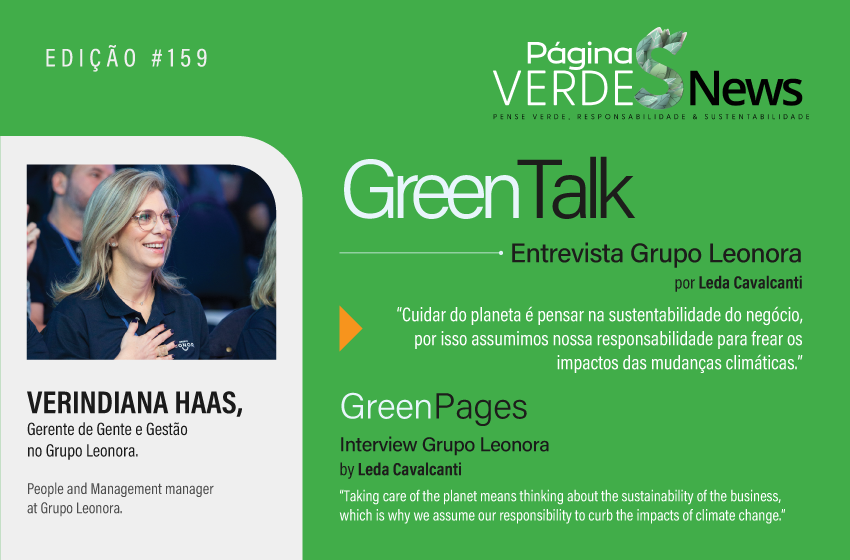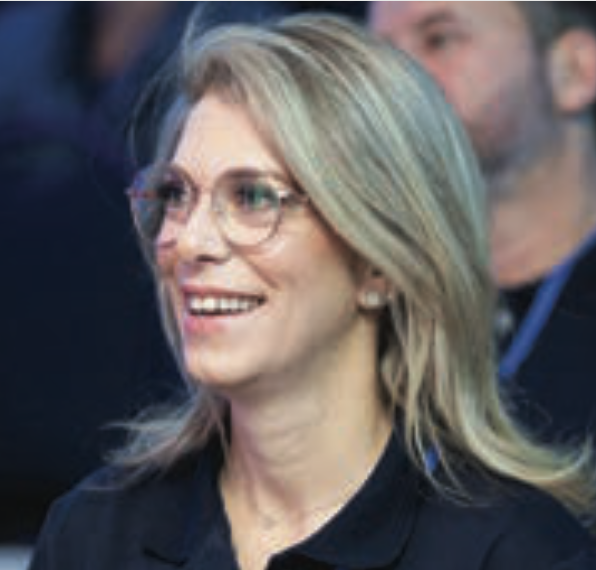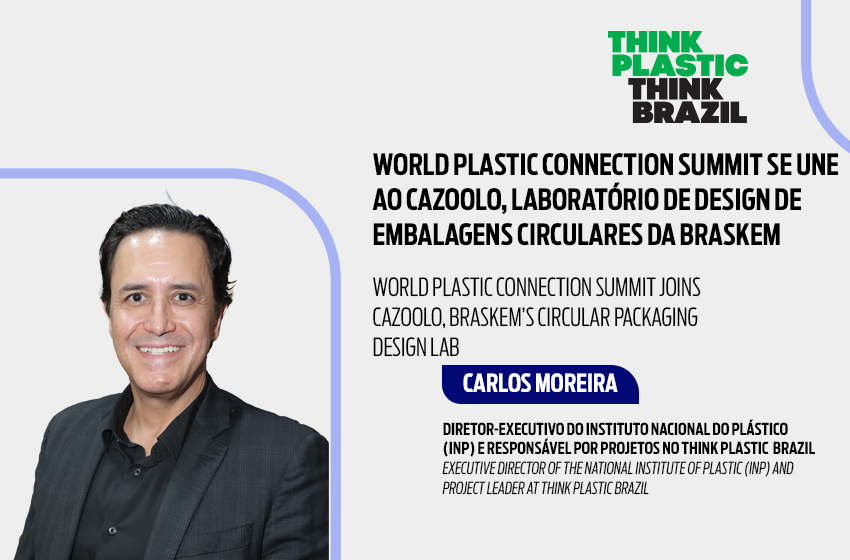
Green Pages – NEWS
THINK GREEN, RESPONSIBILITY & SUSTAINABILITY.
by Leda Cavalcanti
“Taking care of the planet means thinking about the sustainability of the business, which is why we assume our responsibility to curb the impacts of climate change.”

People and Management at Leonora Group
Veridiana Haas, People and Management manager at Grupo Leonor, is also a counselor and secretary of Corporate Governance on the company’s Advisory Board. She is responsible for subsystems related to people, processes, strategic planning and ESG. Graduated in business administration with an emphasis on systems analysis, she has a postgraduate degree in people management and is certified as a counselor by the Brazilian Institute of Corporate Governance (IBGC). She built her career in service and retail organizations, such as the Serviço Nacional de Aprendizagem Industrial (National Industrial Learning Service) (SENAI), in Santa Catarina, and Companhia Hering.
The world generates more than 50 million tons of electronic waste per year, equivalent to the weight of 265 blue whales in cell phones, notebooks, household appliances and other electronic parts that are discarded incorrectly most of the time. The data comes from the UN’s Global Electronic Waste Monitor 2020, which brought another warning: by 2030, electronic waste generated in the world could reach 74 million tons annually.
Manager of the Letron brand, Grupo Leonora, a holding company that has been in the market for 38 years, promotes innovative ideas for education and startups. It built pillars to support its performance on the ESG theme. The Letron brand began developing the Ocean Line, which brought the first electronics made entirely from plastics removed from the oceans.
Since when has the Letron brand operated within ESG concepts?
Veridiana Haas – The Letron brand went to market in 2021 and, in 2022, began the development of the Ocean Line. The first electronics in this line made 100% with plastics removed from the oceans, were launched in July 2023, in the Eletrolar Show fair.
How did the idea come about?
VH – The idea was born from our concern for sustainable issues and is a small step forward in the sustainability journey of the Letron brand and the Grupo Leonora. Its packaging also reduces the use of paint and is made with plastic-free material, which reinforces the entire concept of the line.
What are the products in line and where is the plastic taken from?
VH – Today, we have three products in line, one speaker and two TWS headphones. Expansion of the collection is being studied. Plastic is taken from the Indian Ocean in Southeast Asia.
How does the British brand Boompods support this work?
VH – We developed the products with the British brand Boompods, which has a partnership with the #tide collective, which collects plastic bottles from the oceans, cleans them and then compresses the plastic to send to Swiss University, which transforms this plastic into the raw material that will be used in the manufacture of products.
How much plastic has already been collected and what is the reduction in carbon emissions?
VH – We have already collected around 5,000 bottles, just with the initial batch. Products made with this type of plastic emit 80% less carbon compared to those made with virgin plastic.
O Grupo Leonora segue quais princípios ESG?
What ESG principles does the Leonora Group follow?
VH – ESG is part of the group’s business strategy. This journey began in 2022, with awareness raising on the topic and the beginning of the construction of the entire mapping of our materiality matrix. In 2023, we will further intensify these conversations by establishing the Sustainability Committee, focused on defining and monitoring our commitments and goals, in addition to being a mobilizing agent for the topic in the business. We also created our sustainability policy, which was validated by the Advisory Board, formalizing all these practices.
What commitments have been established?
VH – We look at the three pillars, environmental, social and governance, with a five-year follow-up (2023-2027). In the environmental pillar, our focus is on efficient waste management, climate responsibility and products built with less environmental impact, such as the Ocean line, from the Letron brand. We have goals that include reducing greenhouse gases, looking at the recovery/compensation of products discarded post-consumption and reducing waste in our operations.
In the social pillar, the focus is on team development, diversity, and inclusion, trusting relationships with our consumers and how we can contribute to education and society, through social investments and representation of products with a focus on inclusive education. Our goals include expanding the representation and equality of women in leadership positions, black and brown people, and people with disabilities in our workforce. We strengthened our team of women in leadership positions: it grew 225% in 2023. We ended the year with 35% of women in the total workforce.
In governance, we act with integrity, transparency, and respect, taking care of our supply chain, the data of our employees and customers and also how we reinforce ethical and transparent behaviors for all of our people.
What other environmental management practices are adopted?
VH – Disposal for recycling of waste generated in our operations (cardboard and plastic); compensation for our packaging through EuReciclo; products not tested on animals; development of items with lower environmental impact; and replacement of single-use plastic cups and bottles in everyday life and at corporate events. The plan for 2024 includes progress in the use of energy from renewable sources, GHG (greenhouse gas) inventory, adjustment of CD lighting to LED and reverse logistics of electronic products.
How does the company integrate ESG actions into its business strategy?
VH – Talking about ESG is talking about strategy. In our review of strategic planning, in 2023, we continue to prioritize the development of an ESG culture in the business. In 2024, we have created OKRs (objectives and key results) in all areas focused on the goals established in the ESG plan, making the subject more transversal and a constant topic in discussions with leadership. OKR is a management methodology that aims to simplify the way of approaching a company’s main objectives. We understand that looking at sustainability is the guarantee of the longevity of our business, which is why it needs to be part of the mentality of all areas in their activities.
In terms of social and inclusion issues, what is the performance like?
VH – We have built some pillars to support our operations. When there is a request, we better capture the institution’s needs through the project description or by making visits, because we want to monitor the impact we generate, reduce one-off donations, and accelerate partnerships that encourage long-term investment. We currently support CADI, which works to assist and empower socially vulnerable children in our community, enhancing education. We have information projects on the prevention and early diagnosis of cancer, and we provide services to remote areas, which are areas that are closely connected with our purpose.
How does the company involve employees and suppliers in ESG criteria?
VH – We know the importance of educating for sustainability and how this process of training mobilizers is fundamental for implementing any strategy in practice. We have carried out simple actions that encourage people to look at the topic. In 2023, we held agendas with 100% of our employees, publicizing and providing content about commitments and goals. This content was included in our institutional integration of new employees. We delivered thermal mugs and personalized cups to the entire team, removing the plastic that generated large consumption of single-use items. From October to December 2023, we avoided the use of around 30 thousand plastic cups. We provided water machines (natural, iced and sparkling) and removed the bottles that were provided.
In our GPTW (Great Place to Work) survey, carried out in December 2023, we had an excellent score when we asked about our employees’ perception of the business’s sustainability actions in the face of market turbulence. As for our input suppliers, criteria were included in the partners’ assessment of ESG practices. We replaced those that did not meet the established minimum requirements.
Source: Eletrolar News Ed. 159 – Especial Presidentes




